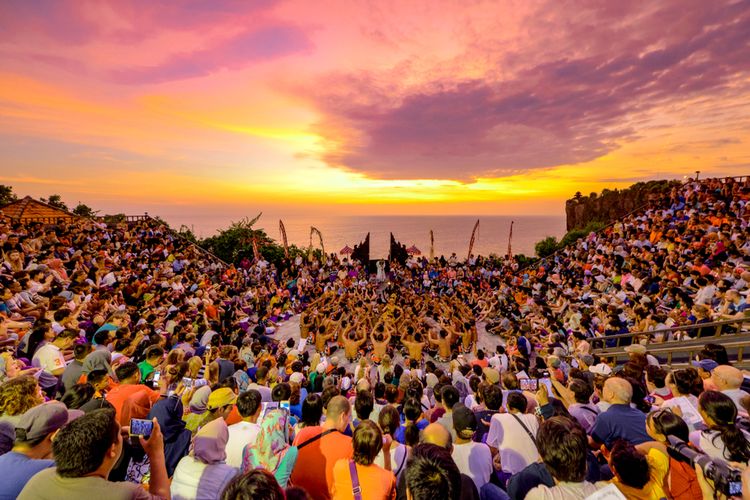

coperems.org, JAKARTA – Embarking on the sacred journey of Hajj is a profound experience for Muslims around the world. Among the millions of pilgrims who undertake this spiritual voyage, Indonesian Hajj pilgrims stand out for their unique approach. In particular, they have been utilizing the fast track path more than any other group, sparking curiosity and admiration among fellow worshippers. Let’s delve into why Indonesian Hajj pilgrims opt for this efficient route and uncover the reasons behind their choice in this blog post.
Use of Fast Track Path by Indonesian Pilgrims
The Fast Track Path has become increasingly popular among Indonesian Hajj pilgrims in recent years. This special route offers a more streamlined and efficient journey for those embarking on the sacred pilgrimage to Mecca. Indonesian pilgrims opt for the Fast Track Path due to its time-saving benefits, allowing them to complete their religious obligations with ease and convenience. By choosing this path, they can focus more on their spiritual experience rather than logistical challenges.
Moreover, the Fast Track Path provides pilgrims with exclusive services such as dedicated transportation, accommodation arrangements, and expedited visa processing. These tailored offerings cater to the specific needs of Indonesian pilgrims during their once-in-a-lifetime journey. The preference for the Fast Track Path highlights how Indonesian Hajj pilgrims value efficiency and comfort when embarking on this significant religious undertaking.
Reasons for Choosing the Fast Track Path
The decision to opt for the fast track path during the Indonesian Hajj pilgrimage is driven by various factors. Time efficiency plays a significant role as pilgrims aim to complete their rituals promptly and make the most of their spiritual journey. Moreover, the fast track path offers convenience and comfort, allowing pilgrims to navigate through crowded areas with more ease and less hassle. This can be especially beneficial for older or physically challenged individuals who may find it challenging to move swiftly in congested spaces.
Additionally, choosing the fast track path provides a sense of security and assurance to pilgrims, knowing that they have access to dedicated lanes and services that cater specifically to their needs. This priority treatment can enhance their overall experience during this sacred journey. Furthermore, some pilgrims may also prefer the fast track path due to health reasons or personal circumstances that require them to have expedited access throughout the pilgrimage process.
Benefits and Advantages of the Fast Track Path
The Fast Track Path for Indonesian Hajj pilgrims offers numerous benefits and advantages that make the pilgrimage experience more streamlined and efficient. By utilizing this path, pilgrims can avoid long queues and delays, allowing them to focus more on their spiritual journey rather than logistical challenges. One of the key advantages of the Fast Track Path is the reduced waiting time at various checkpoints along the way. This means less time spent standing in line and more time dedicated to prayer, reflection, and performing rituals.
Additionally, using the Fast Track Path enables pilgrims to reach important sites within Makkah and Madinah quicker, maximizing their time for worship and contemplation. This efficiency can enhance the overall spiritual fulfillment of the pilgrimage. Moreover, by choosing this expedited route, Indonesian pilgrims can also benefit from dedicated support staff who assist with navigation through crowded areas and provide guidance throughout the journey. This personalized assistance helps ensure a smoother experience for all participants.
Challenges and Concerns Surrounding the Fast Track Path
Navigating the fast track path during the Indonesian Hajj pilgrimage comes with its own set of challenges and concerns. One major concern is the potential for overcrowding and congestion, especially during peak times when pilgrims are rushing to complete their rituals. This can lead to safety hazards and logistical difficulties in managing the flow of people. Another challenge is ensuring that all pilgrims have equal access to the fast track path, as some may feel disadvantaged or left behind if they are unable to utilize this option. It’s important for authorities to implement fair guidelines and regulations to address these disparities.
Additionally, there may be issues related to infrastructure limitations and capacity constraints along the fast track route. Adequate facilities such as rest areas, water stations, and medical assistance must be readily available to support pilgrims throughout their journey. Despite these challenges, many Indonesian Hajj pilgrims continue to see value in using the fast track path due to its efficiency in completing rituals and saving time. By addressing these concerns proactively, authorities can enhance the overall experience for all pilgrims undertaking this sacred journey.
Comparison with Other Pilgrim Paths
When it comes to the Indonesian Hajj pilgrimage, the fast track path stands out among other pilgrim paths. While some may opt for traditional routes, Indonesian hajj pilgrims are increasingly choosing the fast track option due to its efficiency and convenience. Compared to standard paths, the fast track offers a streamlined journey with fewer delays and smoother logistics. This appeals to many pilgrims who value their time and seek a hassle-free experience during this sacred journey.
The fast track path also provides dedicated services and amenities tailored specifically for Indonesian hajj travelers. From expedited visa processing to exclusive accommodations, pilgrims can enjoy a more comfortable and personalized pilgrimage experience through this route. Moreover, by selecting the fast track path, Indonesian hajj pilgrims can optimize their time in performing religious rituals and focus on spiritual reflection without unnecessary distractions or interruptions along the way.
Conclusion
The use of the fast track path by Indonesian Hajj pilgrims has proven to be a popular choice due to its efficiency in managing the large number of pilgrims traveling to Mecca each year. This preferred route offers various benefits and advantages that cater to the specific needs of Indonesian pilgrims, making their journey more streamlined and comfortable. Despite some challenges and concerns surrounding this path, such as potential overcrowding or logistical issues, it remains a top choice for many seeking a smoother pilgrimage experience.
As Indonesia prepares for the upcoming Hajj seasons, it is evident that the fast track path will continue to be utilized by a significant number of Indonesian pilgrims. With ongoing improvements and adaptations made to enhance this route further, it is poised to remain an integral part of Indonesia’s Hajj pilgrimage journey for years to come.






